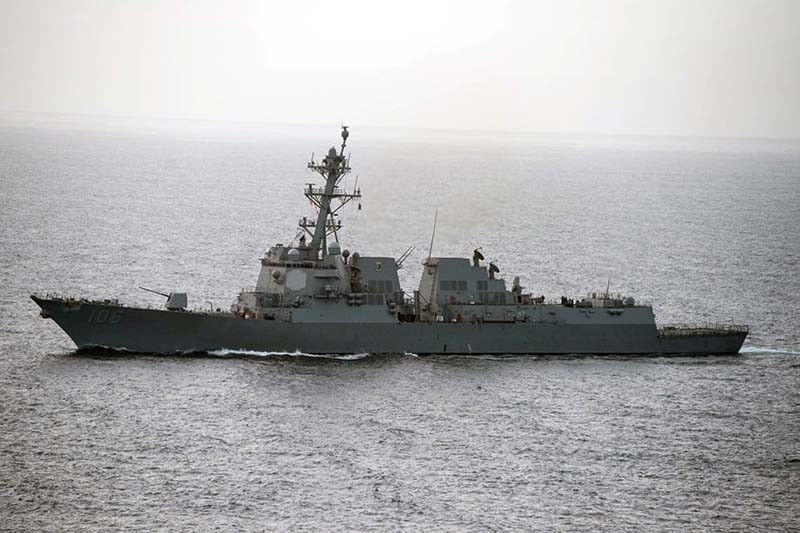China vexed by US Navy ships sailing through Taiwan Strait

BEIJING — China expressed concern on Thursday after two US Navy ships sailed through the Taiwan Strait, the third such operation this year.
"China will pay close attention to and stay informed of US warships sailing through the Taiwan Strait from beginning to end, and has already expressed its concern to the US," said Chinese foreign ministry official spokesman Geng Shuang at a regular press briefing in Beijing Thursday.
He urged the US to respect the "One China Principle" to avoid "impairing China-US relations and the peace and stability of the Taiwan Strait."
China still sees Taiwan as part of its territory to be reunified, despite the two sides being ruled separately since the end of a civil war on the mainland in 1949.
That means Beijing views any ships passing through the straits as essentially a breach of its sovreignty — while the US and many other nations view the route as international waters open to all.
At a monthly press briefing by China's defence ministry Thursday, official spokesman Ren Guoqiang said that the People's Liberation Army would maintain a "high degree of alert".
Lt. Rachel McMarr, a spokeswoman for the US Pacific Fleet, said the destroyer USS Stockdale and oiler USNS Pecos sailed through the strait in a "routine" transit on Wednesday.
"The ships' transit through the Taiwan Strait demonstrates the US commitment to a free and open Indo-Pacific," McMarr said in a statement.
"The US Navy will continue to fly, sail and operate anywhere international law allows."
Beijing protested after the US Navy sailed two warships through the Taiwan Strait on October 22.
A US official told AFP that Chinese ships had asserted a "presence" during Wednesday's sailing, but all interactions between the two navies were "safe and professional".
The naval tensions come just days before scheduled talks between US President Donald Trump and Chinese president Xi Jinping at the G20 summit in Argentina this week.
Trump is expected to press Xi to avert the stepped-up tariffs by throwing open china's markets to US competition and protecting foreign companies' intellectual property.
- Latest
- Trending
































